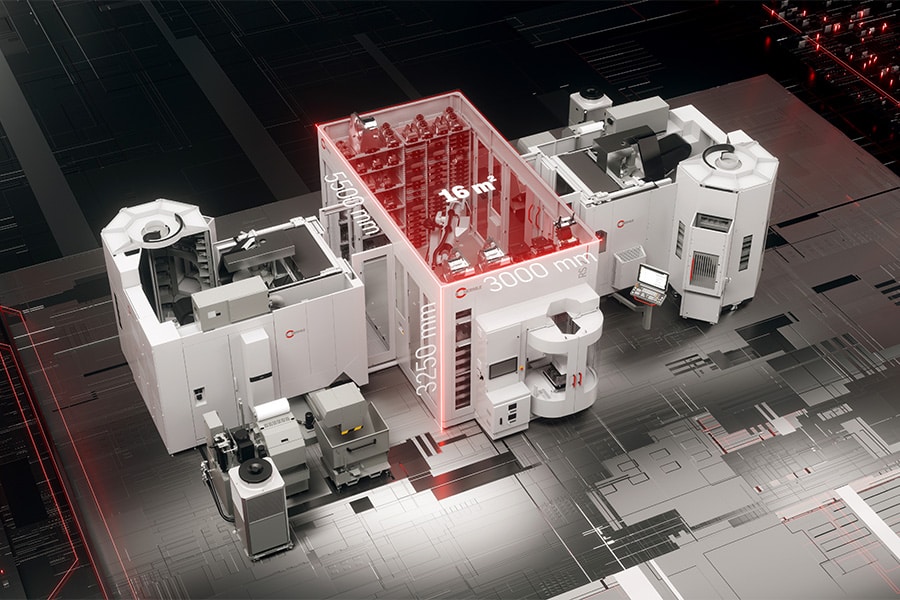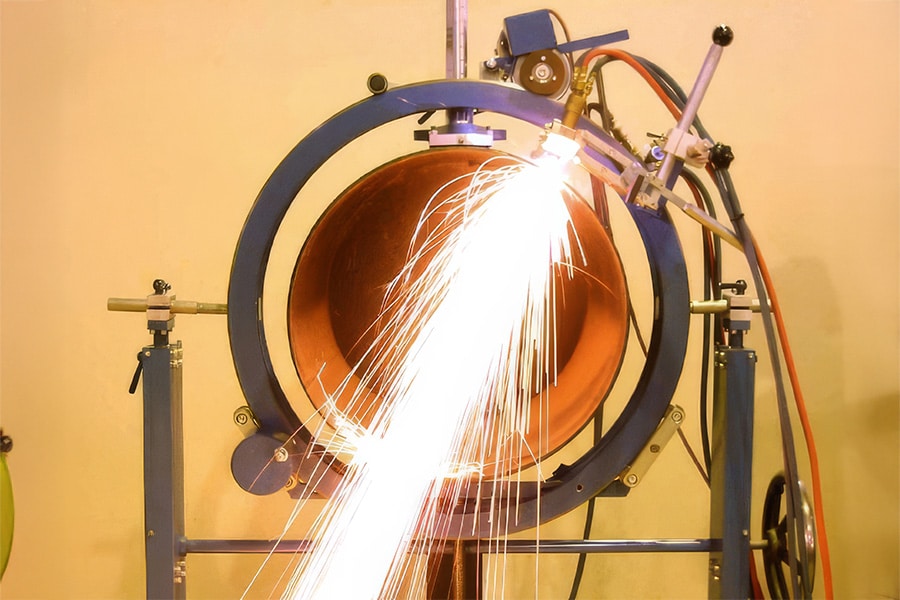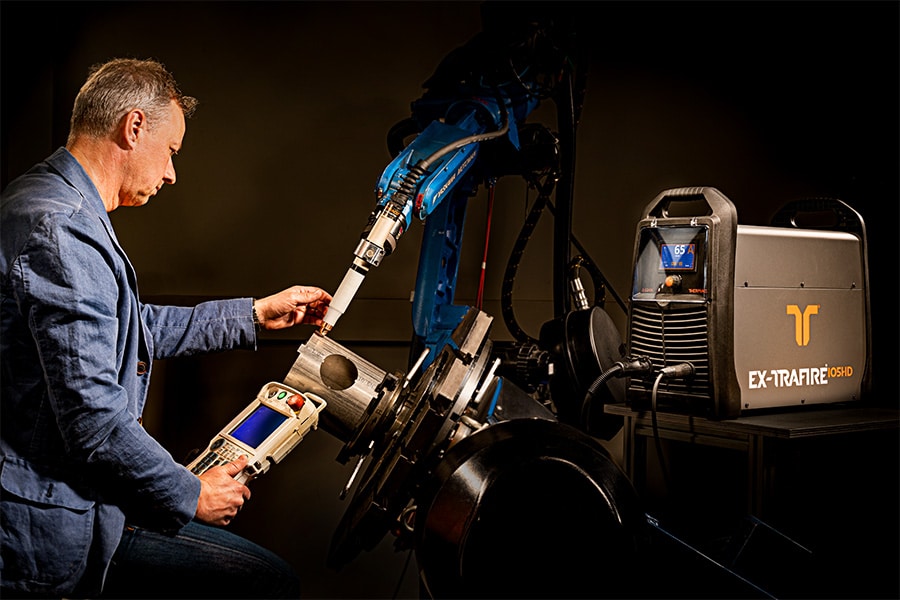
Hybrid extraction solutions keep the welding shop safe
Where there's smoke, there's fire, as the saying goes. In welding, it is just the opposite. The smoke generated from welding processes must therefore be removed in the best possible way. Nederman's experts in industrial air filtration have been supporting customers with advice and technology to make this happen for almost eighty years. Today, workshops increasingly choose a hybrid approach, where torch extraction is combined with room extraction, for a healthy indoor climate for welders in particular, but also for everyone else working in the workshop.
In workshops where steel and aluminum are processed, welding fumes are a major issue. "Without extraction, a so-called welding blanket will form about 5 meters above the welding area. This consists of very fine particles, several times smaller than what you get from cigarette smoke, which spread throughout the room. They enter the bloodstream directly through the alveoli, which is a health hazard. In the end, they remain heavy metals," Nederman consulting engineer Rik Amand summarizes the dangers.
Nederman uses the Dutch limit of 1 mg to work out solutions for his clients. "The Belgian one (5 mg) is outdated. We see safety and a safe working environment coming more emphatically to the fore everywhere. Even the young generation of welders attaches great importance to being able to work safely and healthily. That's where we are happy to help."

Combination of extraction techniques for best possible solution
To this end, Nederman uses a hybrid approach to achieve efficiency and workability. "The classic approach with flexible extraction arms turns out not to be sufficient for a lot of applications. The arm should be at most 40 cm from the weld pool for a good extraction result. As soon as they have to move those arms more than three times to achieve that, many welders drop out."
Therefore, in the past, spatial extraction was often resorted to. The big advantage is that you keep not only the welder safe, but also everyone working around him. But when it comes to heavier welding processes, we see that spatial extraction is often not enough. Or companies have to invest in more and more air extraction towers to achieve the desired values. Over the past year and a half, a new trend has emerged. "Companies are increasingly opting for torch extraction. As a result, 70 to 90% of welding fumes can be extracted at source, leaving only a minimal amount of fumes in the workshop. A solution that has existed since the 1980s, but the devices are becoming lighter, more ergonomic, more flexible and therefore more workable."

Fully certified extraction solutions
Amand emphasizes that none of the solutions are blissful in themselves. "For smaller welding jobs, for example, flexible arms are still an excellent solution. In large production workshops, the combination of torch extraction and spatial extraction will give the best results. But not every welder will want to weld with a welding gun with torch extraction. And you may need a little more gas to keep the weld well protected. So it's always a balancing act as best as possible according to the resources and people available."
Nederman makes all its expertise available for this purpose. To make the necessary calculations, but also to work out complete extraction solutions for his customers, which come with all the necessary certifications. "Air can behave in a very unpredictable way. That is precisely why this combination of welding engineering knowledge and experience with extraction and filtration is of decisive importance. We also always look at the energetic picture here, to provide as much protection as possible with as little energy as possible."
Heeft u vragen over dit artikel, project of product?
Neem dan rechtstreeks contact op met Nederman.
 Contact opnemen
Contact opnemen



